- Home
- Anne McCaffrey
Maelstrom Page 2
Maelstrom Read online
Page 2
“Wow, that was pretty cold. You guys must have been plenty upset.”
“We were,” Ronan said, “and when everybody else came out, Marmie and our parents told us we were supposed to go visit her on her space station to go to school. It was all part of this, but they didn’t tell us that then.”
“Well, they did, actually,” Murel amended, trying to be fair. “But I guess maybe we were too young to understand. We didn’t believe them. We thought they were making excuses and we were being sent away because we’d been a handful. Again.”
“But that wasn’t it at all,” Ronan explained. “It was the beginning of getting us ready for what Marmie was talking about. We’ve got a real mission, like she said. We’re essential, we are.”
Murel smiled, glad that Ronan was pleased. For her own part, she had been looking forward to another lovely cold winter undulating her gray-brown seal’s body beneath the clouds of river ice. Even with the crisis with Da missing and the volcano erupting, she had enjoyed the chance to swim freely in seal form and explore the previously unknown sea. Still, Ro was right. Being chosen like this was an honor. She should be—was—proud, but she was also wishing it was over and they were returning with everything accomplished, waving at the grateful populace and so forth before running to the river and diving in without so much as a “last one in is a rotten fish.”
Later, they shared dreams as they sometimes did. They swam urgently down empty corridors toward a place they absolutely had to find before they—or maybe it was the place—ran out of air. The problem was, they had no idea where the place was or what it looked like. When they tried to search, they were caught in a dizzying galactic spin of anonymous stars. Then the stars turned into the lights on an instrument panel that extended as far as they could see. If they pushed the wrong button, they would die. If they pressed the right one, they would reach the place they’d been seeking. But which one was which? How would they know?
The thoughts they shared when they woke up were almost as confused, the dreams half forgotten, but the anxiety they’d produced remained.
Johnny was in the lounge when they arrived that morning. Ke-ola was talking to him, and the twins knew he’d been talking about them by the way both he and Johnny looked up at them with carefully blank expressions.
“So,” Johnny asked, “how did you sleep?”
CHAPTER 2
THE TWINS TOLD Johnny and Ke-ola as much about their dreams as they could remember, but it wasn’t a lot.
“You knew about them, though, didn’t you?” Ronan asked Ke-ola.
“The Honu picked up that you were not having a good sleep,” Ke-ola admitted.
“Hmph,” Murel said, her irritation magnified by the fitful sleep. “Honus should mind their own business sometimes. It’s not nice peeking into other people’s dreams.”
“He didn’t. All he said was that you were having bad dreams.”
“I’m not a bit surprised myself,” Johnny said, “after your conversation with Marmie yesterday.”
“And how did you know about that?” Murel demanded. “Isn’t anything private around here?”
“Shush,” he said soothingly. “I know because we both talked it over with your parents and Clodagh before ever she spoke a word to you on the matter. It’s a great deal to lay on the shoulders of young ones. As for the corridors and stars and strange instruments in your dream, I’m no psychic but do you know what I think?”
They shook their heads.
“Well, I’ve not a clue about the corridors but I do know about stars and instruments, so what do you say to spending less time in the lounge and more on the bridge so I can teach you—”
“You’ll teach us to fly the Piaf?” Ronan asked, going from depressed and disheartened to euphoric and elated at warp speed.
“As much as I can, though she’s a very complex ship, is the Piaf,” he replied. “But I can help you learn what many of the instruments are for and teach you to fly shuttles and flitters and such. And the ship’s computers are good for more than fairy stories and games, you know. In your dream, so you said, you didn’t know where you were going or how to recognize it. The universe, of course, is vast and it’s impossible to know everything about everything. But we do know a few worlds fairly well and have collected information on others you might find enlightening. Perhaps if you learn more about your destination and what we’ll be passing on the way, you’ll feel better able for your task.”
“So,” Murel said. “More school, eh?”
“It’d be flying, Mur,” her brother said.
“I’d not say school,” Johnny told her, “but educational yes. The professional emissaries and ambassadors would call it fieldwork, I believe. And that’s different altogether.”
She sighed, as if accepting his suggestion reluctantly, because her mood was still dark. In truth, she felt a bubble of excitement rising inside of her. This wouldn’t just be study for its own sake. This would be learning things they actually needed to know. “It will pass the time, if nothing else. Swimming in the tank is better than not swimming at all, but it’s not nearly as good as swimming in the river or sea at home.”
Ke-ola asked, “Can I come too?”
“You can,” Johnny said, heartily clapping him on the back. “Come along, all of you.”
They accompanied Johnny to the bridge, where he introduced them to each of the crew members by name, listing the person’s credentials. The instrument panels surrounding the bridge were almost as intimidating as the gigantic one in their dreams, but Ro was looking at it hungrily now, and Murel could tell he was already trying to guess what each one did. Johnny sat in the command chair and asked the navigator and first officer, Commander Adrienne Robineau, to relinquish her seat beside him, and beckoned Ronan to take her place.
“Commander Robineau, would you be good enough to show Murel and Ke-ola the path our journey will be taking?” he suggested, and to Murel he added, “Next shift you and your brother will change places, but I can’t be having you kids replacing more than one of my crew at a time until you’ve had a few more lessons.”
When the commander was seated at the navigator’s duty station with Murel on her right and Ke-ola on her left, Murel was pleased to see that her first lesson involved just as many instruments on the panel and stars in the cosmos as Ronan’s. The viewport spread from just above the top of the panel and curved high overhead on the ship’s bow. The navigation charts were available on an array of screens and scanners encompassing the shallow U-shaped panel that sloped up an arm’s reach from Commander Robineau on all sides.
She showed them how the screens reflected the individual stars, planets, and formations that were reference points for each immediate stage of the journey. As these points were encountered and bypassed, the screens shifted to the next set of reference points.
“Where’s our world—Halau?” Ke-ola asked.
“We’re too far for it to show up yet. It should be on this screen,” she pointed to the one indicating the farthest set of reference points, “in four standard days hence. Meanwhile, let us begin with the closest reference points on the screen, and as they show up in the viewport, I’ll help you identify them by site and we’ll learn the factors you use to determine which one you are seeing, okay?”
“I thought navigation involved a lot of higher mathematics,” Ke-ola said.
“It does, in the creation of these programs and cues, and if you ever go into the Corps Academy, you’ll be introduced to that process to see if you’ve an aptitude for it and to learn some basics in case of equipment malfunction. But on a day-to-day operating level, the calculations are already embedded in the program and the computer plots them in the required combinations. We use what it shows us on the screens. This, for instance, is Kayenta, another of the border worlds terraformed by Intergal. Most of what we’ll be encountering on this journey are such worlds, all, like Petaybee, here on the outer rim of charted space.”
Once that lesson was done, Ronan came t
o work with Commander Robineau while Ke-ola was sent to the engine room and Johnny introduced Murel to the Piaf’s sophisticated systems.
She had expected the information would be so technical and complicated that she’d be too swamped with details to sort them into anything she could actually use. However, although it wasn’t easy and there was a lot to learn, processing this information was no more difficult than learning the rivers and streams of Petaybee and relearning them as the seasons changed. Ice and eddies, new channels and shifting currents, fish and floods, constantly altered. When they were in seal form, the twins learned the changes in their habitat without having to think about them. Learning the star charts and the ship’s instruments required more concentration and asking a lot of questions, but Johnny and Adrienne—as she told them they could call her—were both patient.
The engineer, Cadwallader Brown, was different. He got on well with Ke-ola and Ronan, apparently, and they seemed to enjoy their lessons with him. However, he had no time for Murel’s aversion to the noises and smells of the engine section and her trepidation at touching any of the enormous and dangerous-looking equipment. He rolled his dark eyes in exasperation and his explanations were delivered in a curt and cutting tone.
Murel was delighted when she was told to move on to the hydroponics garden for instruction in intergalactic biocultural ecology by the erudite gardener, Midori Eisenbeis. Midori had taught at the academy, but said she found actually traveling far more rewarding. Murel was happy to spend the rest of her assigned watch helping Midori plant and prune, graft and cull, fertilize and water miniature ecosystems essential to many different peoples across the universe.
The tropical one was the most beautiful to Murel, who had never seen flowers so large or in such profusion, on such huge trees and bushes. Petaybean flowers bloomed large and bright during the brief growing season because they received sunlight all day and all night for almost three standard months. But the tropical flowers came in colors Murel had never seen on a growing thing. Midori smiled.
“I’ve enlarged this section a bit since I researched the original environment occupied by the people now living on Halau. When your planet’s new zone is ready for settlement, we may be able to transplant some of these there.”
“That would be amazing,” Murel said.
At the end of their watch the twins and Ke-ola swam and played with Sky and, in a more sedate fashion, with the Honu, and afterward fell asleep without any dreams at all.
WHEN THEIR INSTRUCTORS were too busy to give them lessons, the Piaf’s cadets were encouraged to learn as much as they could about the worlds among which they currently traveled.
At the end of the day’s second watch, while Ronan was in the engine room and Ke-ola with Johnny, Murel found the file for Halau.
A landscape like a rolling green sea with giant bubbles rising to the top appeared on the screen. As the camera zoomed closer, she could see that the bubbles were interconnected. The views switched to the interiors of the bubbles, quick shots of pools, gardens, beautifully furnished homey interiors, and lounge areas flashed across the screen.
A melodious female voice said, “Aloha! Intergalactic Enterprises welcomes you to view the latest modern settlement on one of its reclaimed worlds, Halau. The world’s new name is taken from the native Kanaka tongue of its new tenants and means school, a designation highly appropriate for a place that has many intriguing lessons to teach those lucky enough to live here. Halau has been especially micro-terraformed to meet the requirements and taste of its lucky new tenants. Every possible amenity and convenience has been provided to make this world a happy home for its new inhabitants.”
The voice went on to describe the climate-controlled environs, thirteen indoor swimming pools—including three saline ones for the cultural “pets” of the proposed inhabitants—the gardens, the woven grass and wood furnishings of the homes, and the equipment in the workshops where residents could produce handicrafts for sale to other worlds. Flowers like the ones Midori was growing bloomed everywhere within the bubbles. Finally, she described the small but efficient space port, capable of docking two large vessels simultaneously.
It was very pretty and pleasant looking and didn’t seem nearly as bad as Ke-ola had described it.
The hatch to the research compartment hissed and Ke-ola said, “Whatcha doing, Murel?”
“Admiring your home planet. This looks pretty posh, Ke-ola. Are you sure your people will even want to leave to come to somewhere as cold as Petaybee? There’s no telling how long it will take for the volcano to build a new island home for them and settle down enough for them to live there. From the looks of this, they don’t have it so bad where they are.”
“Huh. You think I was kidding around when I told you how bad it is?” he asked, offended.
“No, I know you think it’s bad, but here are all these thirteen swimming pools and three saline ones and the gorgeous lounges and living areas, the space port and workshops—”
“That’s all sim, Murel, can’t you tell?”
“Well, no . . . ” she said, staring at the screen more intently. “I can’t, actually. You mean none of those amenities and conveniences she describes are there?”
“You’ll see soon enough. But this thing you’re watching? We play it once in a while on Halau and have a good laugh. Bitter, but good. The bubble networks aren’t nearly as extensive as they look. We had to plant the gardens ourselves, and there were only a couple of pools, one salt and one fresh, but no way to maintain them. There were holes mapped out for others but our water allotment from Intergal wasn’t enough to have water to live with and pools too. We did find another source eventually but it’s got a few drawbacks. The furnishings were cheap, and they broke almost at once because the gravity is heavy enough that not even the pressurized bubbles are enough to keep us from trashing things. Including, I’m afraid, each other. Making handicrafts and babies doesn’t keep people involved enough to keep them out of trouble. Aunt Kimmie Sue did the cultural classes to try to hold us together, but a lot of people couldn’t believe that we could have ever had something as good as she described. The company makes sure that the only way out for us is the worker resource program they organized for their subsidiaries, or enlisting in the Corps.”
“Well, I’m sorry I believed the lies, then.” She shook her head, trying to reconcile what he was describing with the glowing images on the screen. “I’m glad we can offer you and yours a home.”
Ke-ola nodded, but he looked worried.
CHAPTER 3
THE TWINS AND Ke-ola were on the bridge watching as the Piaf approached Halau. It was a large planet, orbited by two moons and an asteroid belt. As Ke-ola had intimated, it didn’t look like the pretty pictures on Intergal’s vid clip. Its surface was as pocked and colorless as someone in the last stages of a contagious illness.
It didn’t look like a place anyone would want to visit, much less live. Nevertheless, the Piaf was not the only ship in the vicinity. In the huge viewport, plainly visible between them and the asteroid belt that partially obscured the pitted planet, another ship hung in space.
The comscreen lit and suddenly another bridge with another life-size crew was looming above the deck of the Piaf’s bridge. A woman with dark, almond-shaped eyes and strawberry blond hair bobbed asymmetrically across her forehead and down one cheek to just below her ears was looking straight at them. She wore a uniform similar to the one that hung in a bag in Mum’s wardrobe. Company Corps. Of course, she was only a lieutenant, and Mum had been a colonel by the time she quit for good.
“This is the Intergalactic Enterprises Company Corps carrier George Armstrong Custer,” the woman announced. “You have entered restricted Intergalactic Enterprises airspace. Please identify your vessel.”
The Piaf had a com officer too, Steve Guthe, who spoke twenty-seven languages and could sing in even more, but Johnny spoke up instead. “This is the passenger liner Piaf, flagship of Algemeine Intergalactic Enterprises. Captain John
Green speaking, but Madame herself is aboard if there’s a problem you and I can’t sort out between us.”
“No problem, sir, and nothing to sort out. Your ship must reverse course and leave this area immediately. Even under normal circumstances unauthorized vessels are not allowed to visit this world. And at the moment Halau is experiencing a condition-red emergency. We’re standing by to be of assistance.”
“I think you will find that as a senior council member of the Federation, Madame has clearance, as does this vessel, to visit just about anywhere in the known cosmos she wishes. Maybe if you fill us in on the emergency, we might be of assistance too. We’re quite handy, you’ll find, for civilians.”
“No doubt, sir, but it’s none of your concern, or Madame Algemeine’s. Halau routinely experiences meteor storms. Such a storm is in progress at this time. We are standing by until our instruments indicate that it is safe to land and render aid to the inhabitants, if necessary.”
“Where are the hits?” Ke-ola asked urgently. “What coordinates?”
The woman took in Ke-ola, who was peering over Johnny’s head, with no sign of surprise. “I don’t have that information at this time. From your appearance, I surmise that you may be a native of Halau, is that correct?”
“My people live there now, yes,” Ke-ola said. “Can you tell me if the area around New Puna has been hit?”
“I’m sorry. I do not have access to that data at this time,” the woman said.
“Perhaps you could obtain it, then,” said Marmie, sweeping onto the bridge, dressed dramatically in a flowing scarlet robe with a tall black collar, trim in front and around the hem, and deep black cuffs folded back on a wide sleeve. She looked elegant, even regal, Murel thought. “My dear friend Ke-ola is naturally concerned for the welfare of his family.”
Don’t you love it when Marmie throws her weight around? Ronan asked telepathically. The twins had been able to speak to each other without words since they were small, and could communicate with nonhuman animals in that fashion as well. Usually the only other human they could talk to was their father, who was also a selkie, but sometimes people surprised them.

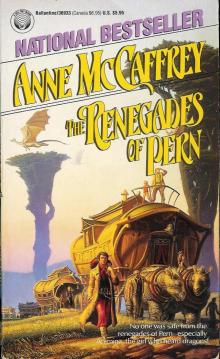 The Renegades of Pern (dragon riders of pern)
The Renegades of Pern (dragon riders of pern)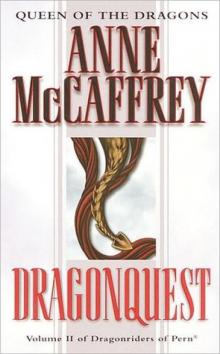 Dragonquest
Dragonquest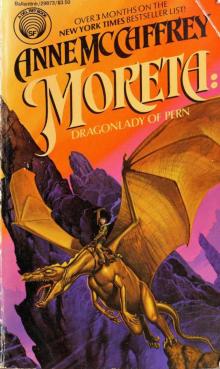 Moreta (Dragonlady of Pern)
Moreta (Dragonlady of Pern)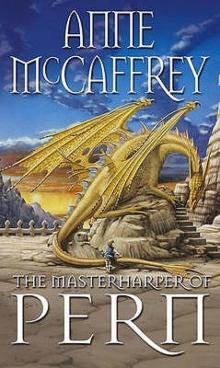 The Masterharper of Pern
The Masterharper of Pern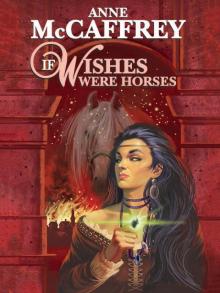 If Wishes Were Horses
If Wishes Were Horses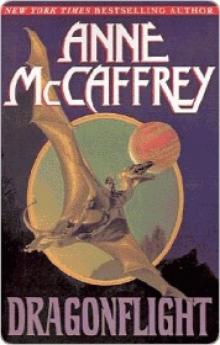 Dragonflight
Dragonflight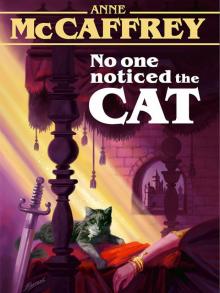 No One Noticed the Cat
No One Noticed the Cat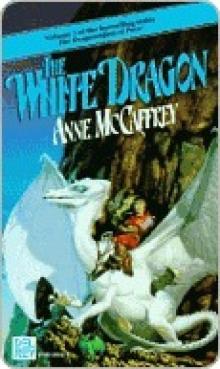 The White Dragon
The White Dragon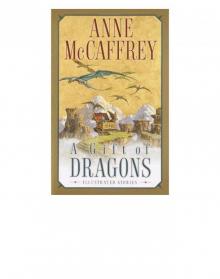 A Gift of Dragons
A Gift of Dragons Harper Hall - Dragonsong
Harper Hall - Dragonsong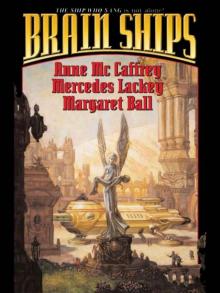 Brain Ships
Brain Ships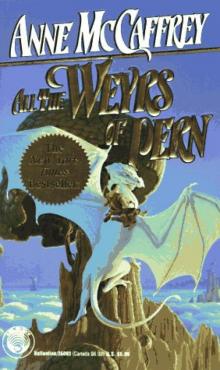 All The Weyrs of Pern
All The Weyrs of Pern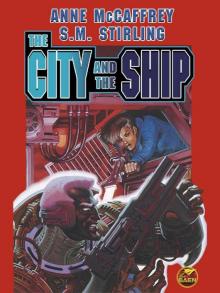 The City and the Ship
The City and the Ship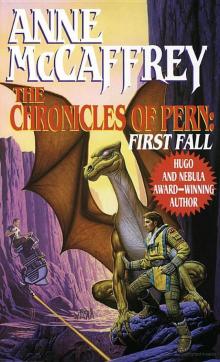 The Chronicles of Pern: First Fall
The Chronicles of Pern: First Fall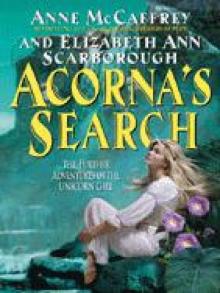 Acorna’s Search
Acorna’s Search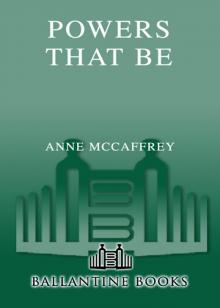 Powers That Be
Powers That Be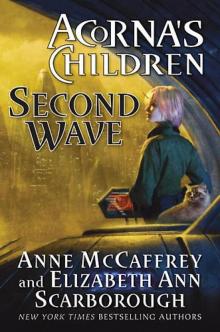 Second Wave
Second Wave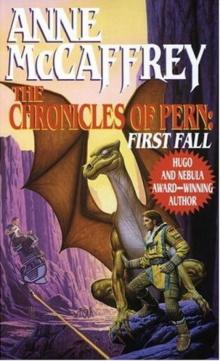 Chronicles of Pern (First Fall)
Chronicles of Pern (First Fall)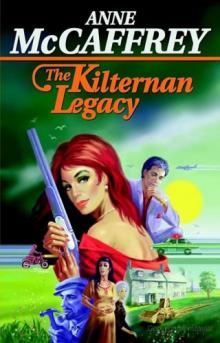 The Kilternan Legacy
The Kilternan Legacy Decision at Doona
Decision at Doona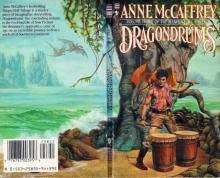 Dragondrums (dragon riders of pern)
Dragondrums (dragon riders of pern)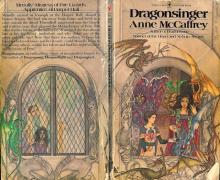 Dragonsinger (dragon riders of pern)
Dragonsinger (dragon riders of pern)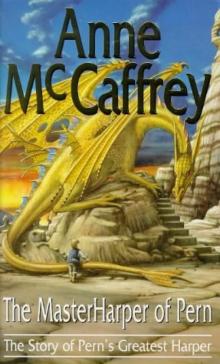 The Master Harper of Pern
The Master Harper of Pern Crystal Singer
Crystal Singer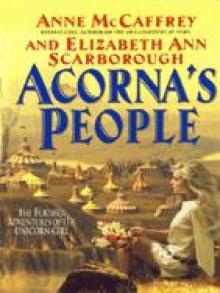 Acorna’s People
Acorna’s People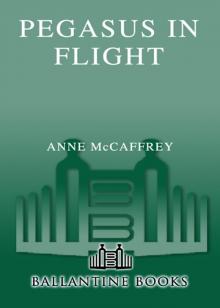 Pegasus in Flight
Pegasus in Flight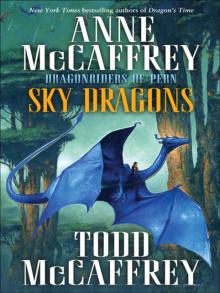 Sky Dragons Dragonriders of Pern
Sky Dragons Dragonriders of Pern Dragonriders of Pern 4 - Dragonsinger
Dragonriders of Pern 4 - Dragonsinger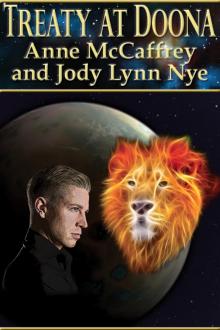 Treaty at Doona
Treaty at Doona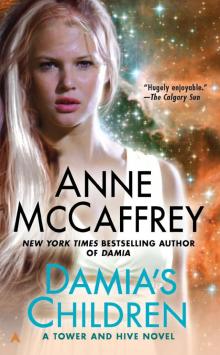 Damia's Children
Damia's Children Stitch In Snow
Stitch In Snow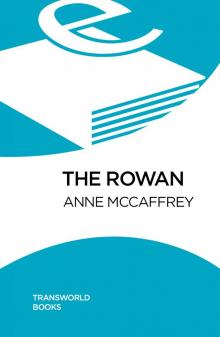 The Rowan
The Rowan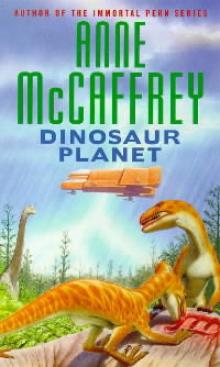 Dinosaur Planet
Dinosaur Planet The Year of the Lucy
The Year of the Lucy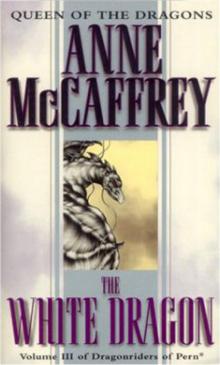 The White Dragon p-4
The White Dragon p-4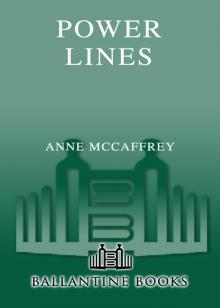 Power Lines
Power Lines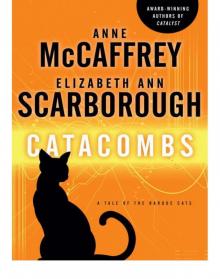 Catacombs
Catacombs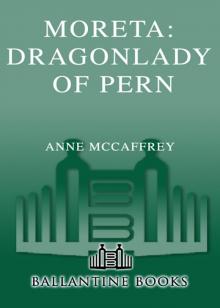 Moreta
Moreta Dragonsinger
Dragonsinger Crystal Line
Crystal Line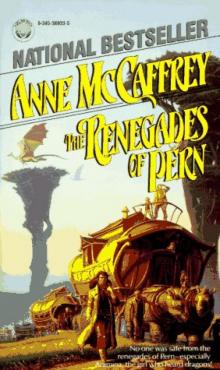 The Renegades of Pern
The Renegades of Pern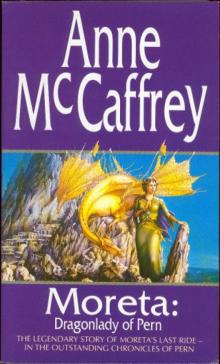 Moreta - Dragonlady of Pern p-8
Moreta - Dragonlady of Pern p-8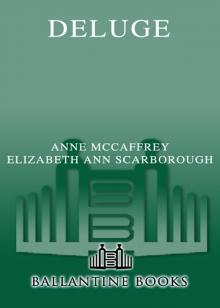 Deluge
Deluge The Skies of Pern
The Skies of Pern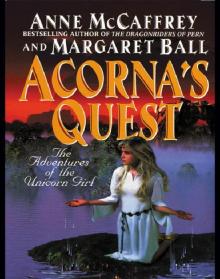 Acorna's Quest
Acorna's Quest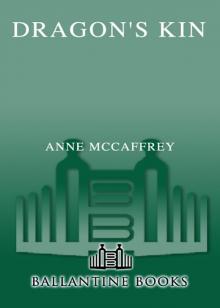 Dragon's Kin
Dragon's Kin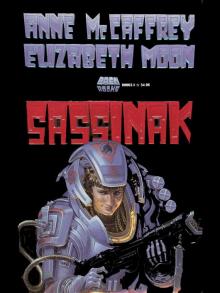 Sassinak
Sassinak![Crystal Universe - [Crystal Singer 03] - Crystal Line Read online](http://i1.bookreadfree.com/i1/03/31/crystal_universe_-_crystal_singer_03_-_crystal_line_preview.jpg) Crystal Universe - [Crystal Singer 03] - Crystal Line
Crystal Universe - [Crystal Singer 03] - Crystal Line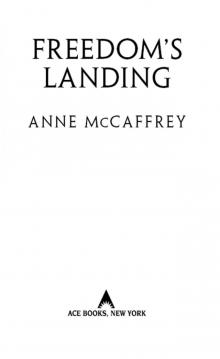 Freedom's Landing
Freedom's Landing Acorna’s Quest
Acorna’s Quest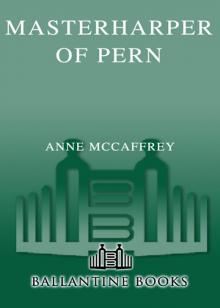 Masterharper of Pern
Masterharper of Pern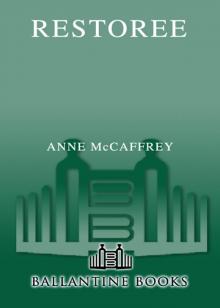 Restoree
Restoree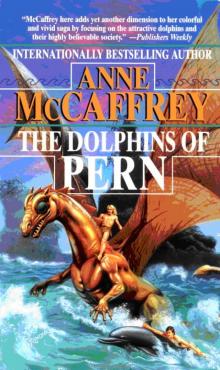 Dolphins of Pern
Dolphins of Pern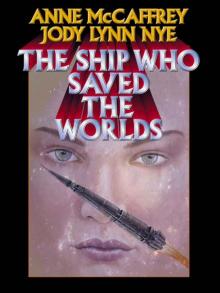 The Ship Who Saved the Worlds
The Ship Who Saved the Worlds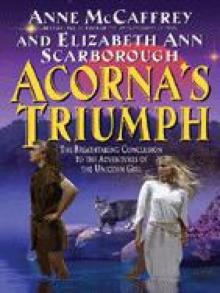 Acorna's Triumph
Acorna's Triumph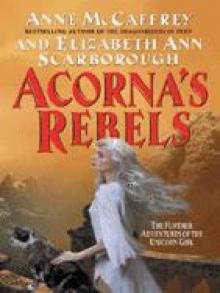 Acorna's Rebels
Acorna's Rebels![[Acorna 08] - First Warning: Acorna's Children (with Elizabeth Ann Scarborough) Read online](http://i1.bookreadfree.com/i1/04/06/acorna_08_-_first_warning_acornas_children_with_elizabeth_ann_scarborough_preview.jpg) [Acorna 08] - First Warning: Acorna's Children (with Elizabeth Ann Scarborough)
[Acorna 08] - First Warning: Acorna's Children (with Elizabeth Ann Scarborough)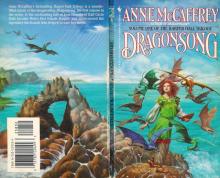 Dragonsong (dragon riders of pern)
Dragonsong (dragon riders of pern) Dragonriders of Pern 6 - Dragondrums
Dragonriders of Pern 6 - Dragondrums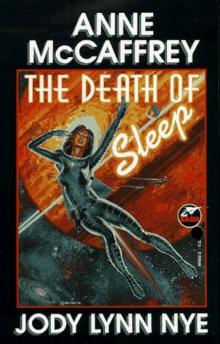 The Death of Sleep
The Death of Sleep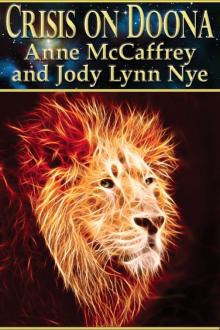 Crisis On Doona
Crisis On Doona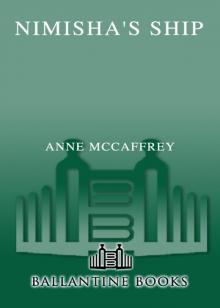 Nimisha's Ship
Nimisha's Ship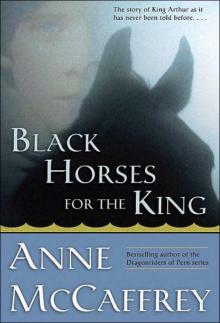 Black Horses for the King
Black Horses for the King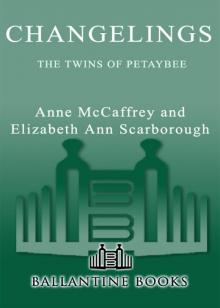 Changelings
Changelings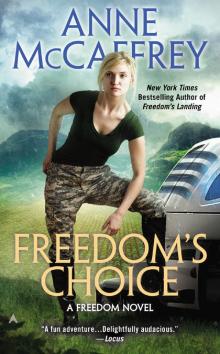 Freedom's Choice
Freedom's Choice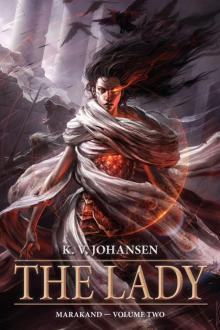 The Lady
The Lady The Coelura
The Coelura Catalyst
Catalyst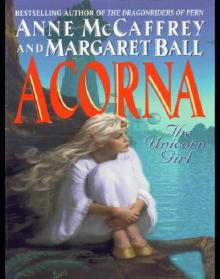 The Unicorn Girl
The Unicorn Girl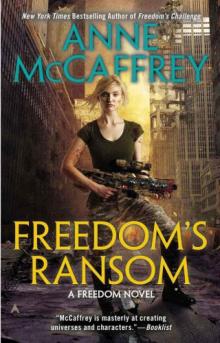 Freedom's Ransom
Freedom's Ransom Nerilka's Story
Nerilka's Story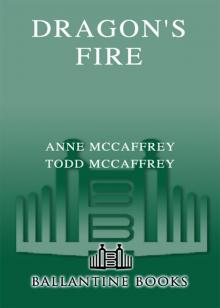 Dragon's Fire
Dragon's Fire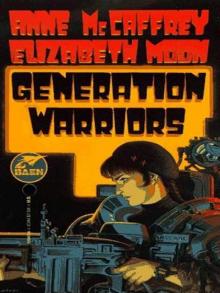 Generation Warriors
Generation Warriors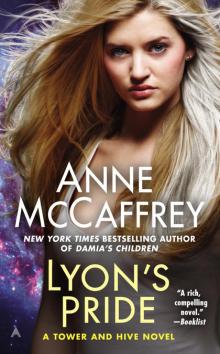 Lyon's Pride
Lyon's Pride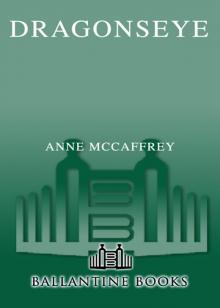 Dragonseye
Dragonseye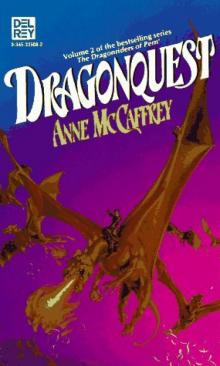 Dragon Quest
Dragon Quest Dragondrums
Dragondrums Dragonsong
Dragonsong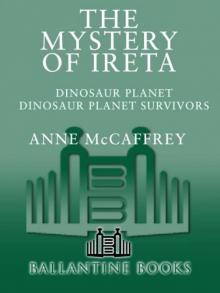 The Mystery of Ireta
The Mystery of Ireta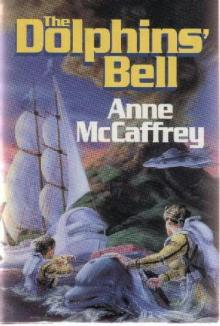 Dolphins' Bell
Dolphins' Bell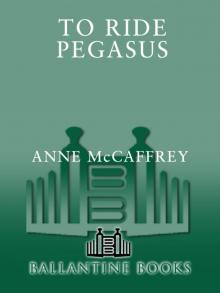 To Ride Pegasus
To Ride Pegasus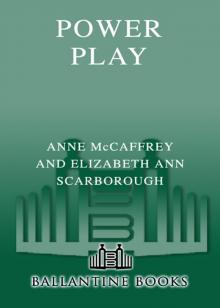 Power Play
Power Play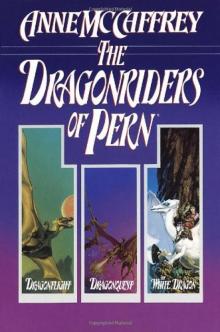 The Dragonriders of Pern
The Dragonriders of Pern An Exchange of Gifts
An Exchange of Gifts The Ship Who Sang
The Ship Who Sang Sky Dragons: Dragonriders of Pern
Sky Dragons: Dragonriders of Pern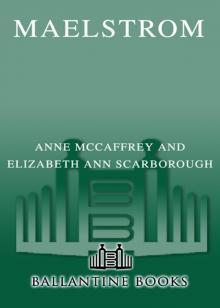 Maelstrom
Maelstrom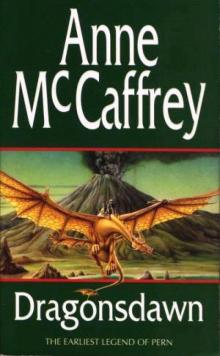 Dragons Dawn
Dragons Dawn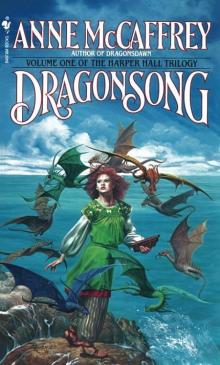 Dragon Song
Dragon Song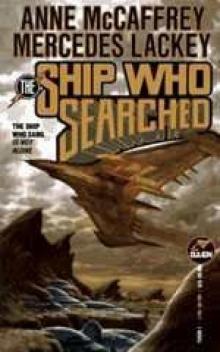 The Ship Who Searched b-3
The Ship Who Searched b-3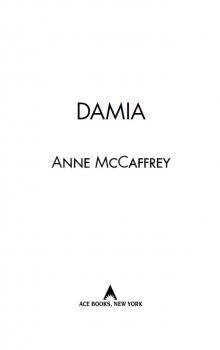 Damia
Damia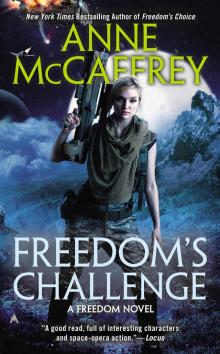 Freedom's Challenge
Freedom's Challenge